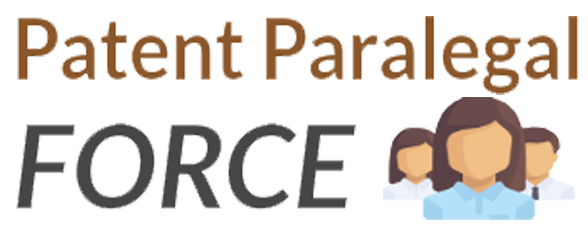The field of patent law offers exciting career opportunities for individuals with a passion for intellectual property and legal processes. Within this field, patent paralegals play a vital role in assisting patent attorneys and patent agents throughout the patent prosecution process. In this article, we will explore the path to becoming a successful patent paralegal, from understanding the responsibilities of the role to developing the necessary skills and expertise.
Understanding the Role of a Patent Paralegal
A patent paralegal is a legal professional who provides support to patent attorneys and agents in managing patent prosecution activities. They assist in tasks such as conducting patent searches, preparing and filing patent applications, and maintaining patent files. The role of a patent paralegal is crucial in ensuring the smooth progress of patent applications and compliance with legal requirements.
Education and Skills Required
To embark on a career as a patent paralegal, a strong educational foundation is essential. Most employers prefer candidates with a bachelor’s degree in a relevant field such as paralegal studies, intellectual property law, or a scientific discipline. Additionally, key skills for a patent paralegal include attention to detail, strong organizational abilities, excellent communication skills, and proficiency in legal research and document drafting. Continuous education and professional development are also important to stay updated with evolving patent laws and industry practices.
Gaining Experience
Gaining practical experience is crucial for building a successful career as a patent paralegal. Internships and entry-level positions provide valuable opportunities to work alongside experienced professionals and gain hands-on experience in patent prosecution activities. Networking within the legal and intellectual property communities can open doors to potential job opportunities and mentorship relationships. Aspiring patent paralegals should actively seek out these experiences to develop their skills and industry knowledge.
Developing Technical Knowledge
A deep understanding of patent law and regulations is essential for a patent paralegal. They need to be familiar with patent prosecution procedures, including the application process, responding to office actions, and managing correspondence with patent offices. Keeping up with industry trends, changes in patent laws, and advancements in technology is crucial for providing accurate and informed support to patent attorneys and agents.
Effective Communication
Effective communication skills are paramount for a patent paralegal. They interact with inventors, attorneys, and patent office personnel regularly. Clear and concise communication ensures accurate understanding of instructions and requirements. Additionally, patent paralegals are responsible for document drafting and proofreading, where attention to detail and adherence to formatting guidelines are critical. Maintaining confidentiality when dealing with sensitive patent information is also essential.
Efficient Document Management
Patent paralegals are responsible for organizing and managing patent files throughout the patent prosecution process. They ensure that documents are accurately filed, deadlines are met, and relevant information is easily accessible. Utilizing patent management software can streamline document management, improve efficiency, and reduce the risk of errors or oversights.
Conducting Patent Searches
One of the important tasks of a patent paralegal is conducting patent searches. This involves using databases and search tools to identify existing patents and prior art related to a particular invention. Analyzing and reporting the search results to the patent attorney or agent assists them in determining the patentability of an invention and drafting a stronger patent application.
Assisting in Patent Prosecution
Patent paralegals play a crucial role in the patent prosecution process. They assist in preparing and filing patent applications, ensuring all necessary documentation and forms are accurately completed. They also help in responding to office actions, which are official communications from patent offices, and manage correspondence with patent offices on behalf of the patent attorney or agent.
Compliance and Ethics
Compliance with ethical guidelines and maintaining the highest level of professionalism is of utmost importance for patent paralegals. They must ensure they do not have any conflicts of interest and avoid any unethical practices. Respecting client confidentiality and safeguarding sensitive information is a fundamental aspect of the role.
Professional Growth and Advancement
To enhance professional growth and advancement as a patent paralegal, joining professional organizations related to intellectual property law is beneficial. These organizations provide networking opportunities, access to educational resources, and opportunities to stay updated with industry trends. Attending industry conferences, seminars, and workshops further expands knowledge and fosters professional development. Pursuing advanced certifications, such as the Certified Patent Paralegal (CPP) designation, demonstrates expertise and dedication in the field.
Balancing Work and Continuing Education
Continuing education is essential for patent paralegals to stay updated with changes in patent laws, industry practices, and technology advancements. Balancing work responsibilities with learning opportunities requires effective time management. Incorporating daily routines for learning, such as reading industry publications or listening to podcasts, can help in ongoing professional development. Seeking employer support for continuing education initiatives can also contribute to a successful career as a patent paralegal.
Mentoring and Collaboration
Building relationships with experienced professionals in the field can be invaluable for career growth. Seeking mentorship opportunities and collaborating with peers on team projects provide avenues for learning from their expertise and experiences. Engaging in open and collaborative discussions fosters knowledge-sharing and helps expand skills and understanding of patent prosecution processes.
Ethical Considerations
Adhering to ethical guidelines is of utmost importance in the field of patent law. Patent paralegals must avoid conflicts of interest, maintain client confidentiality, and uphold professional standards. Being diligent in these ethical considerations contributes to maintaining trust and integrity within the profession.
Conclusion
Becoming a successful patent paralegal requires a combination of education, skills, experience, and continuous learning. By understanding the role, developing technical knowledge, and honing essential skills such as communication and document management, aspiring patent paralegals can build a strong foundation for their career. Balancing professional growth, maintaining ethical standards, and embracing opportunities for mentorship and collaboration contribute to a fulfilling and rewarding journey as a patent paralegal.
